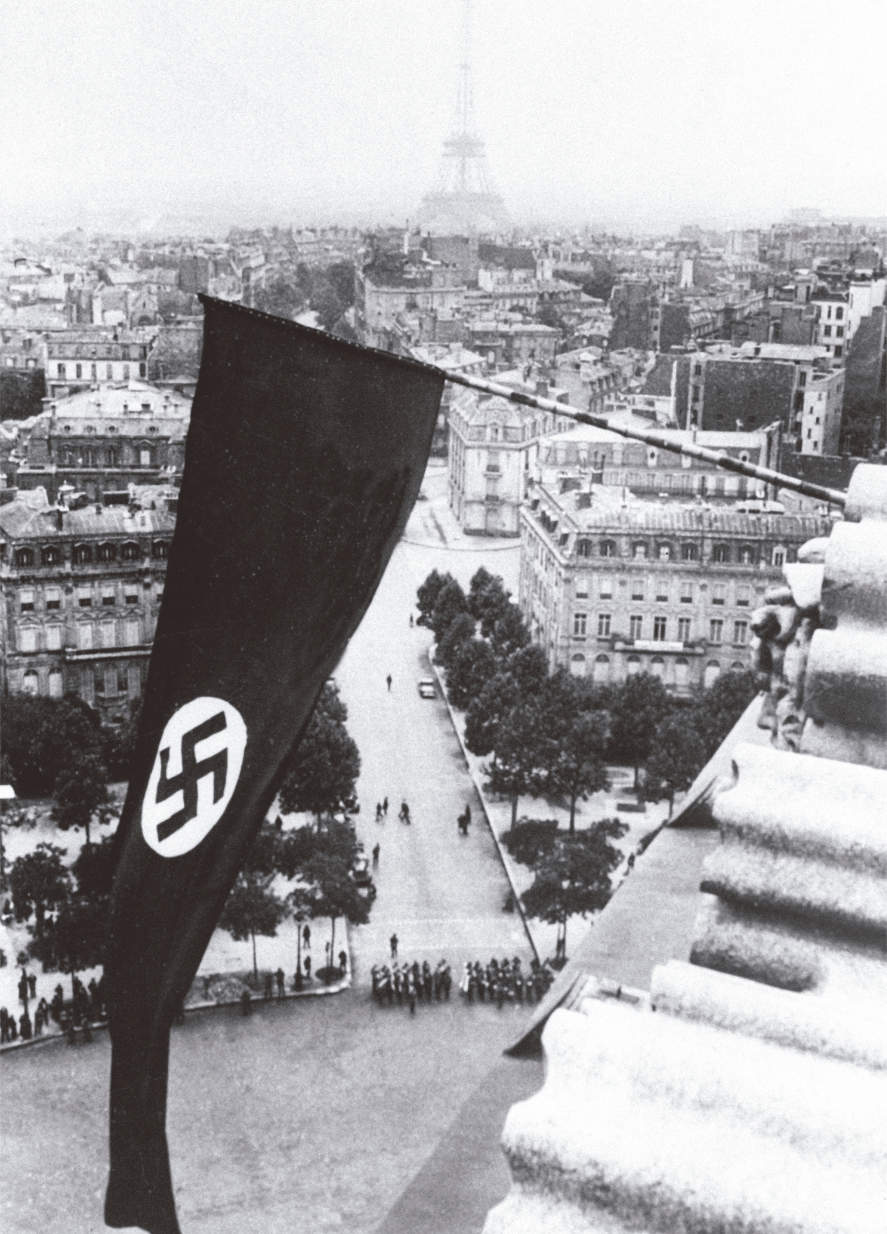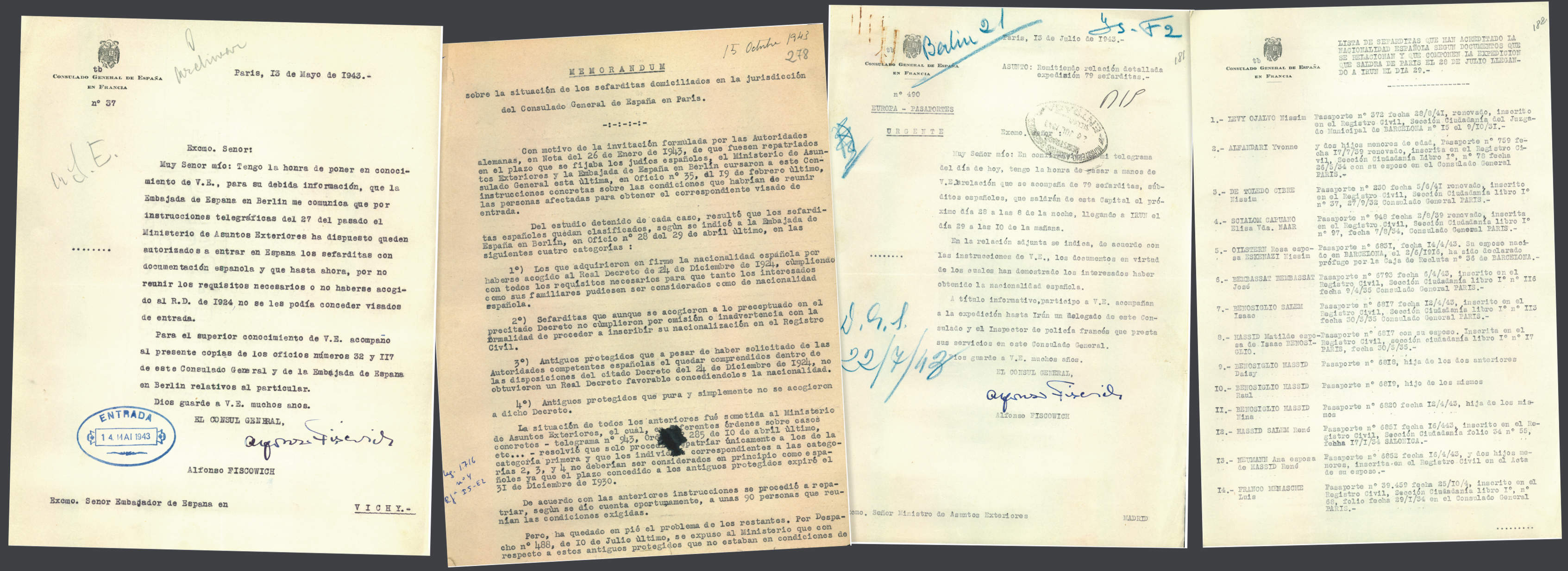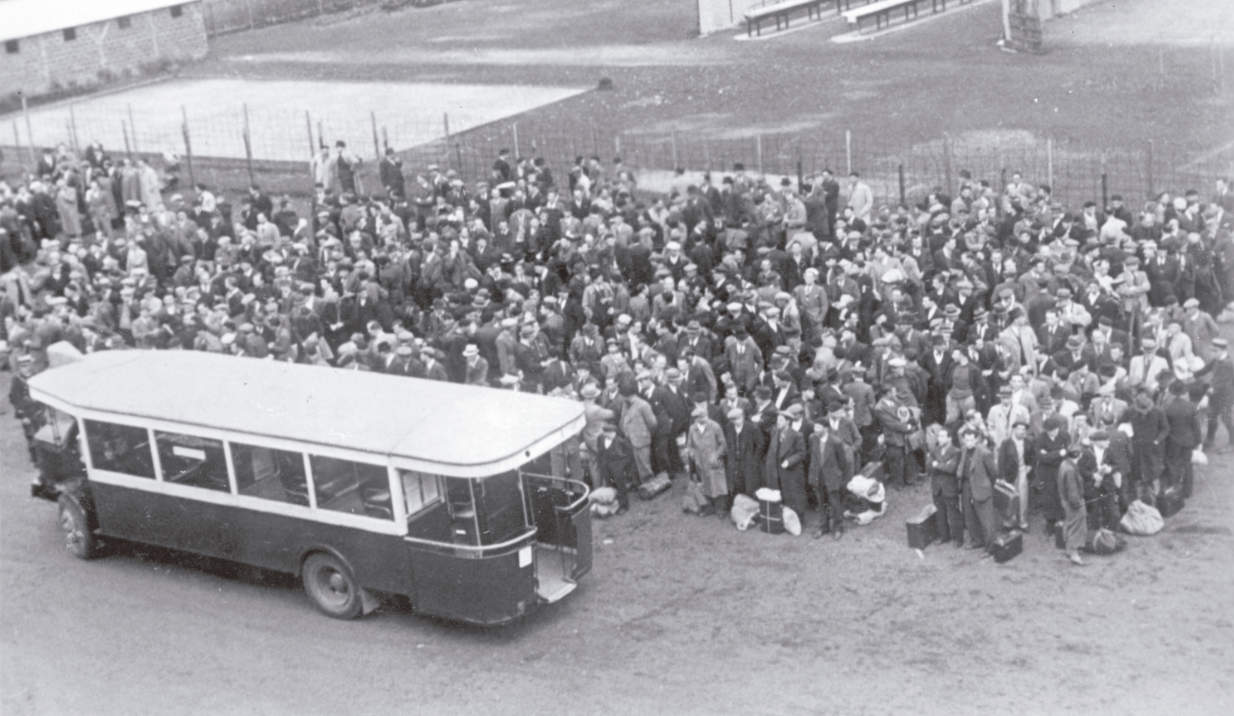CONSUL GENERAL (PARIS, 1943-1944)

ALFONSO FISCOWICH Y GULLÓN
Helping the “protectees”
On 1 May 1943, at the age of 59, Alfonso Fiscowich y Gullón (1884-1972) took up the post of Consul General in Paris. He succeeded his friend, Bernardo Rolland, with whom he had coincided at the Spanish Embassy in Berlin, when they were both young secretaries during World War One.
While in Germany, Fiscowich had married Ida von Fries, from an aristocratic military family, whose father had been a Prussian General under the Kaiser, and who had two brothers killed in World War I. Werner, Fiscowich's brother in law, was purged from the diplomatic service by Ribbentrop for being considered "hostile to the Nazi regime".
Before arriving in Paris, Fiscowich had learned about the so-called Jewish question in the French Protectorate of Tunisia, and had found little difficulty in defending the 134 Spanish Jews registered at the Consulate against anti-Semitic laws that were less severe than those applied in Vichy.
In France, he continued with the repatriation efforts initiated by Rolland. Between 2000 and 2500 Jews were registered at Spanish Consulates in France, but only between 300 and 500 had their papers in order as required by Madrid. The Spanish government's criteria excluded the others — simply considered former protectees — from protection and repatriation, and exposed them to deportation, as they were considered stateless by the Nazis. Fiscowich was distressed and disgusted by this measure, so he decided to do his utmost for those who had Spanish nationality but were not registered, as well as for those who, holding Spanish identity documents, had not complied with the 1924 Royal Decree.
He realized that if they were treated as Spanish nationals, they would be entitled to the necessary documents for their protection and, as the case may be, repatriation. He knew that this would save their lives.
Something surprising happened between 5 May and 27 June 1943: to his astonishment, Fiscowich received instructions, handed down by the Ministry through the Spanish Embassy in Berlin, to grant entry visa to all those that had been protectees until then without meeting the requirements. Therefore, the diplomat convened these individuals at the Consulate to stamp the required entry visa and subsequently apply for German exit safe-conducts. Up to 143 protectees requested evacuation.
However, on 27 June, Foreign Minister Gómez- Jordana telegraphed Fiscowich to deprive him of such authority, accusing him of disobeying prior orders and urging him to "adhere strictly to instructions, without modifying or questioning them". Gómez-Jordana sent up to three telegrams criticizing this lack of a humanitarian policy: Madrid was going back on its word. Fiscowich was forced to stop the preparations for repatriation, and, after having deposited the passports and exit applications before the German Consul General in Paris, he recalled the visas that had already been granted. However, during those two months he continued giving many protectees identity documents that they did not have to return. These later would serve to prove their link to Spain. The Consul's personal concern for the protectees would continue throughout his mandate: he sent his superiors eight entreaties on their behalf.
In July 1943 Fiscowich interceded before the German authorities and achieved the liberation of Raul Saporta Nissim from the Compiégne concentration camp. In October, after intense efforts, and underlining the sad circumstance of the passing of her husband, interned in Drancy, he achieved the liberation of Elisa Carasso Modiano.
Thanks to Fiscowich's tireless insistence, warning of the many arrests of Spanish Sephardim, Madrid change its stance. In this regard, in October 1943 Fiscowich proposed that Spanish Jews who were still in Paris could move to a third country; otherwise, they would be deported to the concentration camps in Central Europe. On 20 November — after several arrests had taken place — he asked the Foreign Ministry to reconsider the granting of entry authorizations or, at least, try to get Germany to hand down special regulations for Spanish Jews. Finally, on 1 December 1943, when an anguished Fiscowich reported the arrest of 50 Spanish Jews, Foreign Minister Gómez-Jordana gave the green light and ordered requesting their freedom. On 25 February 1944, thanks to Fiscowich, the Gestapo liberated 23 of those interned in the Drancy camp.
Fiscowich retired as an Ambassador in Ankara in 1954, after 44 years of service. He died in Irún (Spain) at the age of 89.

 Loading
Loading




